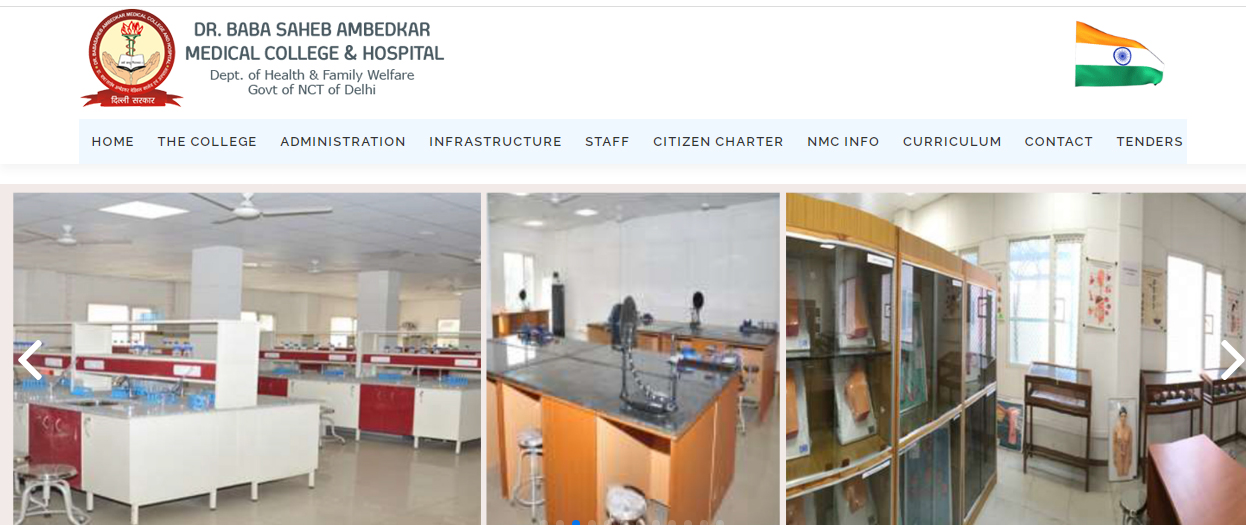
Dr. Baba Saheb Ambedkar Medical College, Rohini, Delhi
Dr. Baba Sahib Ambedkar Medical College and Hospital is an academic health sciences center that has been established with an aim to provide leadership and excellence in the field of teaching, clinical care and service in a student-centered comprehensive campus. The institute is committed to the advancement of knowledge and intellectual growth through teaching and research, and at the same time, to the well-being of the people of Delhi through communicative leadership and service with a smile.
Named after the leading activist, social reformer, first Law Minister of Free India and the chief architect of the Constitution of India, the Dr. Baba Saheb Ambedkar Medical College, has been established by the Government of NCT of Delhi in the existing 29.4 acre campus, where the 540 bedded Dr. Baba Saheb Ambedkar Hospital is located.
Dr. Baba Saheb Ambedkar Medical College & Hospital
Sector 6, Rohini, Delhi
Ph: 011-27058778
E: bsamchdelhi@gmail.com
W: www.bsamch.ac.in
M.B.B.S.

Bachelor of Medicine, Bachelor of Surgery (Latin: Medicinae Baccalaureus, Baccalaureus Chirurgiae; abbreviated in many ways, most commonly MBBS, but also MB ChB, BMBS, MB BCh, MB BChir), is the primary medical degree awarded by medical schools in countries that follow the tradition of the United Kingdom. The historical degree nomenclature states that they are two separate undergraduate degrees. In practice, however, they are usually combined as one and conferred together, and may also be awarded at graduate-level medical schools.
Bachelor of Medicine and Bachelor of Surgery (MBBS), is a professional degree in medical science. A person holding the MBBS degree becomes a certified medical practitioner. The duration of MBBS course is five years and six months including one year of rotational internship at hospitals, health centres, and health camps organised by non-profit organisations (NGOs). MBBS course syllabus includes studies on anatomy, pharmacology, pathology as well as community health & medicine, paediatrics, and surgery. The syllabus, prescribed in such a way that MBBS degree holders can choose a specialisation for further majoring and practising medicine. The career specialisations for MBBS students are Nephrology, Cardiology, Gynecology, Anesthesiology, Organ Transplant, Endocrine, and General Surgery, etc.
- Log in to post comments
- 64 views
